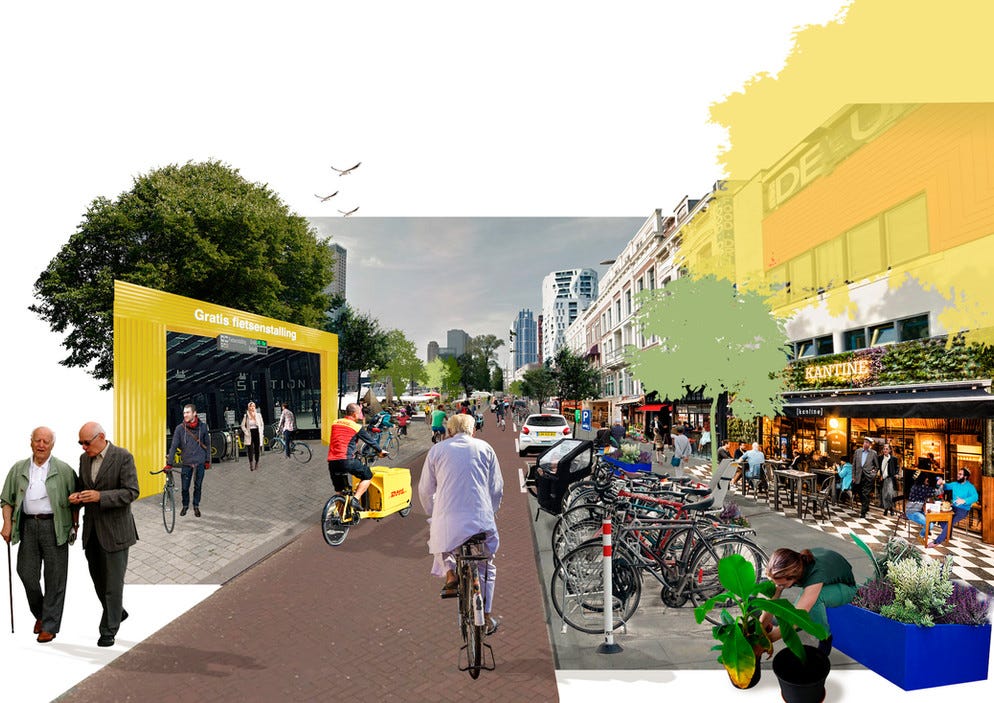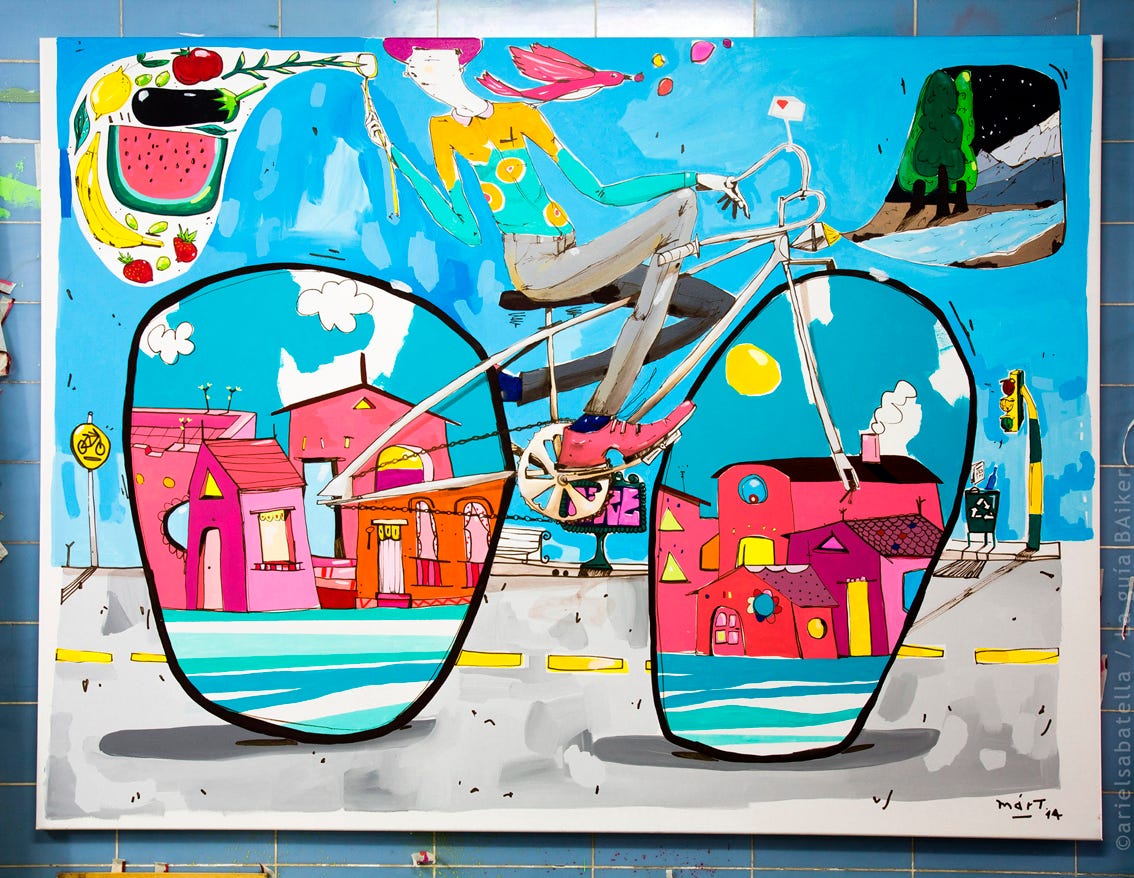I still vividly remember the first time I stepped out of the train station in the Dutch city of Groningen. I moved from Sweden to the Netherlands for one semester as an exchange student. The sheer sight was overwhelming, almost cinematic. I was greeted by thousands of bikes, neatly parked in a huge bicycle garage.
The roads didn't buzz with the noise of car engines. Instead, hundreds of people, young and old, were pedaling gracefully, chatting with friends or simply enjoying their ride. It felt like a ballet on wheels, organized to welcome first-time visitors like me.
The next morning, there was only one thing to do: buy a bike. It wasn't just about copying the Dutch, but about being a part of the culture. In Groningen, bikes were a way of life.
I cycled every day and fell in love with the Netherlands. When the exchange program ended, I contacted my home university in Stockholm and asked if I could stay in Groningen and study remotely. Living in the city of bikes was a dream come true, and I wasn't ready to let it go. The six months of exchange turned into an indefinite stay. I'm here for good, all thanks to the bicycle.
Groningen showed me that real world cycling utopias do exist. And if Groningen did it, why can’t other cities?
Have a great weekend,
Lior
"My two favorite things in life are libraries and bicycles.
They both move people forward without wasting anything."
- Peter Golkin
🌎 From the world. In a historic turn of events, cyclists now outnumber motorists in the center of Paris! A study by Institut Paris Region found that Parisians use bicycles for 11.2% of their trips inside the city center, whereas people use cars for just 4.3% of journeys. In 2010, only 3% of trips were made by bike.
🚲 From the Netherlands. Amsterdam will enforce its new 30 km/h speed limit with speed cameras. Six months ago, the city placed 6,500 signs and ran campaigns to inform everyone about the city-wide 30 km/h limit, expected to result in 20%-30% fewer accidents. Starting in June, the city will enforce the new rules more strictly using speed cameras.
The Youtube channel Not Just Bikes released a video about this change in Amsterdam, asking “What is the 'Correct' Speed Limit?”
🧡 From Humankind. A few years ago, we worked with DRIFT (Dutch Research Institute for Transitions), and Studio Bereikbaar on Rotterdam's Bicycle Vision. The main goal of the bicycle vision was to use cycling as a transition tool for Rotterdam’s mobility. Since cycling touches so many fields (mobility, health, the economy, livability), it can be used to take Rotterdam a step further.
Rotterdam's Bicycle Vision focuses on different topics: the creation of small and fast routes, investment in supporting facilities, working with different stakeholders and organizations, and reaching new target groups.
Want to learn more about cycling in the Netherlands? We host a masterclass on September 18 - 20, 2024. Register here.
📚 Dive Deeper. Once a week, a group of migrant women in Amsterdam learn how to ride a bicycle. Inspiring them to let go of the fear and get behind the wheels is a Ghanaian community mother named Mama Agatha. Watch this heart-warming documentary by Fadi Hindash about letting go of the past and the freedom of riding a bike.
🤩 So beautiful. Mart Aire from Buenos Aires started painting graffiti in the city in 1998 when he was only 12. His bicycle murals are vibrant and stunning, showing that the bike is more than just a mode of transport.
Photo: Mart Aire / Flickr
Want to join our Remaking the Street Summer School? Last chance to register.
22 July – 2 August, 2024 | Munich & Rotterdam, The Netherlands
A collaboration between Technical University of Munich, European Institute of Innovation and Technology, and Humankind. Don't miss out on this unique opportunity to explore the concept of transformative cities and gain both theoretical insights and practical tools to make impactful changes. Deadline: 31 May.




